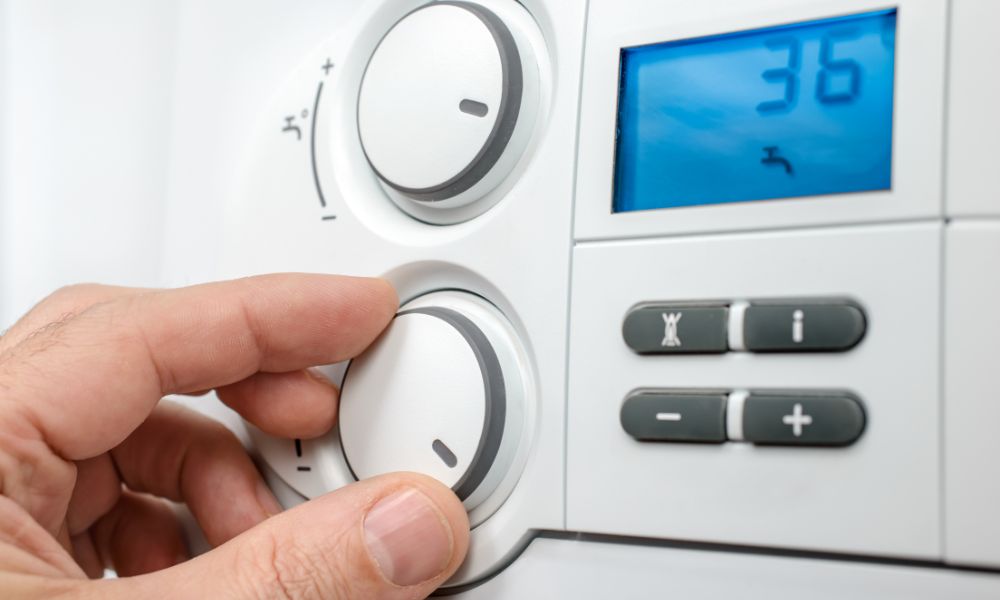One of the most popular heating systems in homes is the oil boiler. As a result of technological advancements, oil boilers are more reliable than ever before, giving users good value for money. In spite of this, even well-maintained oil boilers sometimes encounter problems due to regular use.
In this article, we discuss some of the most common oil boiler problems and how to fix them. You may be able to resolve some of these issues on your own, but others may be more complicated and require the assistance of an OFTEC-registered engineer.
Problem 1: Boiler not starting
The first thing you should do if your oil boiler won’t start is check the level of heating oil in your tank. During winter months, when the boiler is used extensively, people often run out of heating oil without realising it.
Solution:
It is likely that your oil boiler will not start if your oil tank is empty or there is only a small amount of oil remaining at the bottom. As a result, you’ll need to order heating oil to refill your tank right away.
When your tank is left empty for a long period of time, it could cause a variety of problems with your boiler. At Quad Fuels we supply standard kerosene and additised premium kerosene to homes. Fuel sources like kerosene are efficient, low risk, and competitively priced.
Alternatively, if the display panel indicates an oil supply issue, but your tank still has sufficient oil, then debris might be at the bottom. In this case, you will need to clean your oil tank after the current supply has run low by calling an engineer who does this service.
Problem: Oil boiler not firing up for the heating
The nozzle could be causing issues with your oil boiler. Having a blocked nozzle can cause your boiler to run slowly and inefficiently and could cause your central heating system to malfunction. Your heat exchanger could start to soot up and create carbon build up which is not good for your health and the environment as well as cost as the boiler is not working to its optimum temperature.
Solution:
Oil boiler nozzles should be replaced once a year by an OFTEC registered engineer as part of your annual boiler service. Having your boiler serviced gives you an idea of its condition and prevents small problems from becoming bigger.
Keep your boiler’s tank topped up with sufficient heating oil to prevent residue from building up in the tank. Additionally, you should regularly test your tank for condensation build up which occurs naturally with the outside temperature, especially if it is old.
Problem: Oil boiler is producing smoke or soot
Your oil boiler’s flue pipe may be blocked or cracked, causing smoke or soot to emanate.
Solution:
The first thing you should do when you notice your boiler is producing smoke or soot is to inspect the outlet flue pipe. It is particularly important to clean the part that connects with the chimney, and remove any dirt, fluff, or debris that might have blocked the exhaust.
Check the gaskets around the inspection door of your oil boiler as well. Occasionally, gaskets may be twisted or cracked, allowing soot and smoke to escape from the furnace. Replacement of the faulty gaskets is the solution if this is the problem.
Problem: Boiler isn’t producing enough heat
Having a dirty air filter may be the reason why your oil boiler isn’t producing enough heat even if the thermostats are set correctly. It is not uncommon for lint to accumulate on air filters, resulting in blocked filters if it accumulates. It’s also possible that your fan belt is broken and not functioning properly. Check that the supply air fan is working properly if the filter and fan belt seem to be in good condition.
Solution:
You might be able to fix the problem yourself if your central heating system isn’t working. Here are some tips to get your central heating working again:
- We recommend you check the thermostat is turned off or set too low. Turn the thermostat up to the highest setting and see if this resolves the problem.
- Try and bleed your radiators
- Make sure the water pressure is at one bar. Sometimes if the boiler doesn’t have enough pressure, it will be unable to operate.
- Turn off the power supply to the boiler, wait 60 seconds, then switch it back on.
- Check if the condensate pipe is frozen. If so, defrost the frozen pipes to safely thaw the condensate pipe and get the boiler working again.
- Turn off the power supply to the boiler, wait 60 seconds, and then switch it back on again.
We hope some of these tips have helped if you are facing problems with your boiler.

